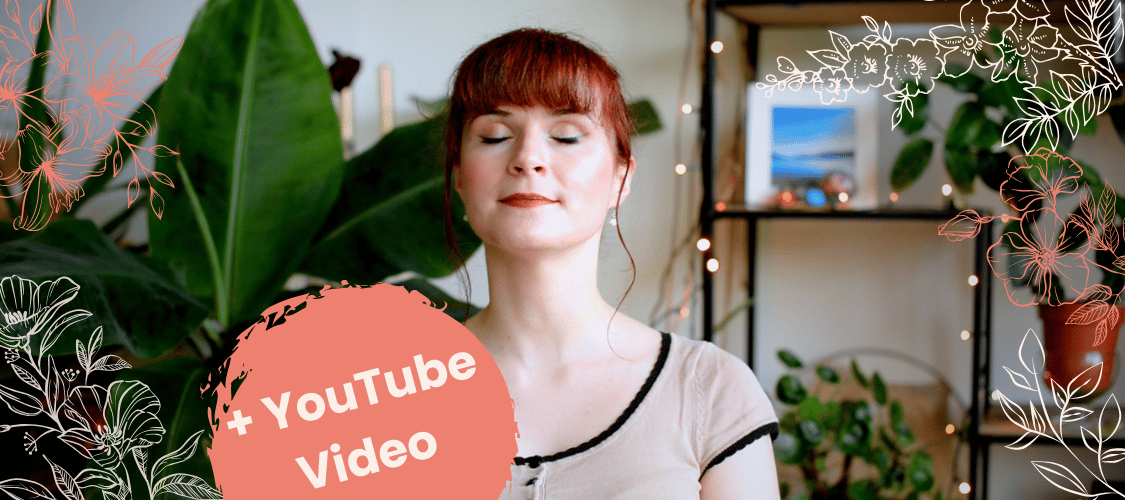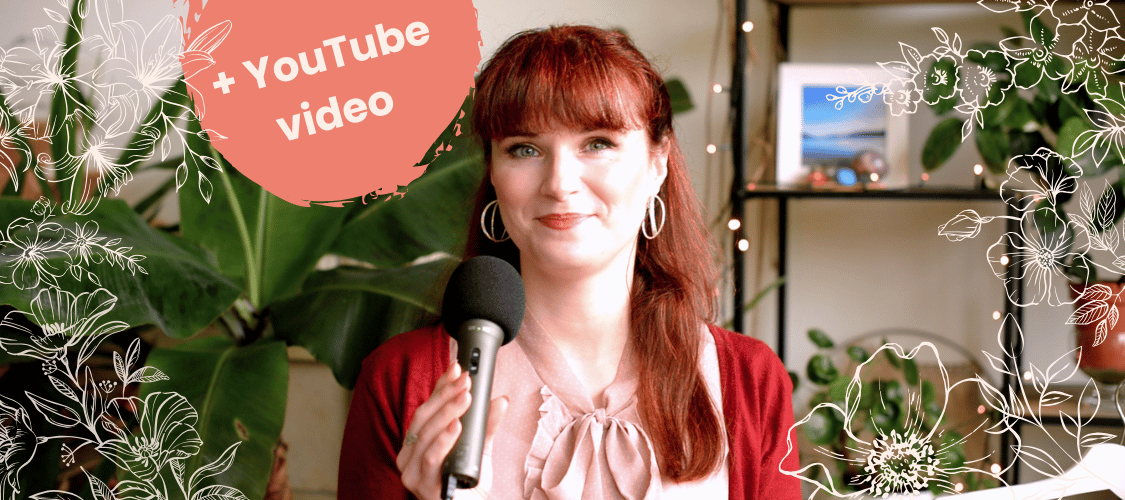We, as humans, are wired to connect with each other. Our survival used to depend on it, and our biological programming has not expired yet. Sometimes, relationships fall apart due to excessive codependency, putting too much pressure on the other person. It’s unhealthy. Let’s explore how to stop being codependent and learn ways to avoid codependency to improve our relationships and overall happiness.
What is Codependency?
Codependency is a psychological and emotional condition that often involves putting others’ needs and emotions above one’s own. It affects our ability to have healthy, mutually satisfying relationships.
By excessively relying on someone else for approval, identity, and a sense of self-worth, we create unhealthy dynamics in romantic relationships, burdening the other person with the expectations of being our everything.
Read more about the importance of self love in a relationship.
However, codependency is not entirely our own fault; it often develops in response to dysfunctional family dynamics, childhood trauma, or other adverse experiences. Moreover, those who grow up in households where there is addiction, abuse, or neglect are particularly susceptible to developing codependent behaviours as a way to cope with the challenging environment.
It developed in our early years of life, however codependency is a learned behaviour. It can be addressed through therapy, self-awareness, and the development of healthy coping mechanisms and interpersonal skills. Therapy, especially approaches like cognitive-behavioural therapy (CBT) and dialectical behaviour therapy (DBT) can be particularly helpful in addressing codependent patterns and promoting healthier relationships and point to you how to stop being codependent.
Buy the book by Melody Beattie
To expand your knowledge and learn more about examples of how to stop being codependent, I recommend this book that also changed my perception.
| Codependent No More: Amazon US | Codependent No More: Amazon UK | Codependent No More: Waterstones |

Am I Codependent? – My Own Experience
I’m not encouraging you to diagnose yourself or others in your life. However, it’s always helpful to reflect on our own patterns of behaviour and focus on personal growth.
When you’re in a relationship and you find yourself experiencing more sad moments and persistent low moods, you’re clearly suffering a lot. And if you’re the one suffering more in a relationship, you’re the one that needs to make some changes or seek help.
Do These Experiences Sound Familiar to You?
I recognised certain codependent behaviours in myself some time ago, especially when I first began therapy. Reflecting back on myself in relationships, it became clear to me – my anxious attachment style, my codependency and also fear of abandonment all were present and destructive.
Codependency can be such a destructive force, as it feels like my mood and well-being depends entirely on someone else. If they are unhappy or distant and don’t reach out – my mood plummets. It’s a vulnerable place, filled with helplessness and constant fear of abandonment and the feeling of never receiving enough from the relationship. In result, this very much resonated to my partners who felt like they could never make me happy and felt overwhelmed 😞
Before I knew how to stop being codependent, I used to mistakenly believe that specific needs had to be fulfilled by another person, and if they weren’t, it meant I had to walk away. It was always easier to walk away than be vulnerable and committed, trying to protect my heart from too much suffering. I was feeling disappointed that my partner didn’t want to fight for us, while I was the one throwing in a towel.
I lacked accountability and failed to take responsibility for what I feel. My happiness felt so fragile, capable of snapping within a day if my partner didn’t reach out to me or provide the reassurance I craved.
Signs You’re Codependent
Firstly, let’s take a moment to look at yourself in a relationship – do you recognise any of these signs in yourself?
I especially sympathise with my exes, good men who genuinely tried to make me happy but could never provide what I needed, leaving them overwhelmed. What a terrible feeling it must have been.
Nonetheless, it’s important to not blame yourself for anything and forgive yourself for what was. Because we all do the best we can with the knowledge we have at the time.
Low Self-Esteem
People with codependency often rely on others for their self-worth, seeking external validation to feel lovable. This reliance on others’ opinions can lead to low self-esteem.
People-Pleasing Tendencies
Codependent people tend to prioritise their partner’s needs and wishes over their own. There’s a strong desire to please others while neglecting their own self-care in the process. Moreover, some believe they must constantly do things for others to deserve their love and attention.
Insecure Attachment Styles
Adults with an anxious-preoccupied attachment style often fear abandonment and seek constant reassurance and validation from their partners. They tend to do people-pleasing and avoid setting boundaries because of fear of abandonment.
Adults with a fearful-avoidant attachment style often crave emotional intimacy but are deeply afraid of getting hurt. They struggle with trust, have difficulty forming and maintaining close relationships, and exhibit ambivalence in their interactions. This fear of both intimacy and abandonment can lead to codependent behaviours, where they may cling to relationships yet struggle with emotional vulnerability.
Need for Control and Perfectionism
Codependent individuals may feel a need to control their partner’s actions and emotions to maintain a sense of security and stability. This desire for control often stems from anxiety or a fear of uncertainty.
Fear of Being Alone
You might be paralysed by the fear of abandonment by a partner and it can make people overly dependent on their partners. Meanwhile, this fear often arises from past abandonment experiences or deep-seated insecurities.
Lack of Boundaries
People struggling with codependency often find it hard to set and maintain healthy boundaries. Moreover, they may have difficulty saying no or expressing personal needs and desires, leading to enmeshed relationships. There’s a deep fear of conflicts, because each conflict looks like a potential end of a relationship.

Childhood Traumas
Traumatic or dysfunctional childhood experiences, such as growing up in a household with addiction, abuse, or neglect, can contribute to the development of codependent behaviours. Children from such backgrounds often learn to prioritise others’ needs and neglect their own.
Ways to Avoid Codependency in Romantic Relationships
Once you identify your problem, it’s time to take personal responsibility and improve your life once and for all. Every step you take is a move forward, and be kind to yourself if you slip or have codependent thoughts resurfacing again. It’s a process, and you’re doing your best. You’ve got this! Let’s learn how to stop being codependent.
Read more about how to detach and enter the unbothered girl era.
Engage in Hobbies, Education and Personal Projects
Last time I noticed my anxiety skyrocket I honestly had little going for me. I waited for my man to save me instead of creating a life I love, where others are eager to be a part of it. Revisit your old hobbies, the books you wanted to read, and just start self-education, self-improvement, and self-development. There’s literally nothing better for your self-perceived worth than admiring what you do and it’s what inspired my blog and can inspire you too. Perhaps you’ve considered a side hustle? Now is the time to focus on that! How exciting!
Realise Your Happiness is Yours to Build
We often enter a relationship to finally find happiness. This is so wrong on so many levels. Be a scrumptious cake, where others are just a cherry on top. Be a black and white, complete photograph of your own, where the partner only brings some colour to it. Focus on your own happiness and instead of asking: how can he make me happy? Ask: how can I improve his life?
Heal Your Attachment Style
This one to me is one of the biggest ways how to stop being codependent. If you are anxious or avoidant, it’s time to look into how a securely attached person behaves and then just start emulating it. Let go of fear and act from a position of love. Fake it until you make it and remember – it’s a process, so be patient and give it time.
Work on Future Goals
Make a list of things you enjoy and start doing them. Reflect on how you want your ideal life to look like and ask yourself, what’s the first smallest step I can take right towards that goal? Start making plans and find ways to keep yourself accountable and track your progress. One tiny step at the time!
Build Your Self-Esteem
Implement positive self-talk and other methods to boost your confidence. For example, recognise your inherent value and worth, and start appreciating the person you have become. Celebrate your wins and achievements and truly love yourself – flaws and all!
Read more about How to Become More Confident.
Read more about How to Recognise Your Worth and Value.
Go to Therapy
Sometimes we avoid fixing our own issues when we cling on to others and live with their lives too much. This leads to neglect of our own needs and healing. Invest in therapy as it is truly the best investment you can make! Therapy allows us to heal and grow and stop being codependent.
Fulfil Your Own Needs First
We often think that if we have certain needs, our partner should meet them for us to feel happy. However, it’s not always the case. Some needs are for us to satisfy ourselves. For example, if you feel lonely, instead of demanding even more time from your partner, ask yourself why. Maybe it’s time to make new friends. Another reason for feeling alone is insufficient self love. Perhaps it’s time to revisit the idea of self love.
Improve Your Emotional Control
We have every right to every emotion we experience. However, we do not have the right to burden others with every reaction to these emotions we experience. Our emotions are our responsibility and even though there are no bad emotions, it’s good to learn to control them and learn from them what is going on within us. Treat them as messages from your brain and signals from your intuition. Used properly, they are invaluable information we can use to our advantage. Treat them as your friends and signal that something’s up and accept even the negative emotions as a loving message from your brain.
Discover my free PDF with exercises to improve your emotional control and emotional regulation. Download and start improving yourself today!

Establish Healthy Boundaries
Healthy boundaries safeguard what’s sacred to us and promote self-respect. Saying ‘no’ assertively and reacting promptly to boundary violations empower us.
Focus on Yourself
You are the most important person in your life. It’s not selfish to work on your goals, improve your life, and engage with people who support your dreams. Stop mothering your man and others, because it sends a message that you think he cannot do things himself but he is a big boy and doesn’t need a mother. Check if you please others because you think you won’t be worth to them much if you don’t serve so readily. You deserve to be loved for who you are, not for what you do. It’s quite difficult, but can greatly help in how to stop being codependent.
Set Realistic Expectations
Understand that no one person can fulfil all your needs or make you happy all the time. Nowadays, we think that a partner should be our lover, friend, therapist, travel companion, entertainer and absolutely everything. Realise it’s normal for individuals to have separate identities and interests within a relationship. Have other friends where you can “outsource” certain needs to fulfil. Read how to best spend time alone.
Encourage Independence in Others
Support your partner in pursuing their own goals, friendships, and interests. Celebrate their achievements and encourage them to maintain their individuality. It’s good to have some time to miss each other and having 1-2 interests in common is enough, while the rest can be done alone or with friends. Introduce some space to breathe, because the man starts to miss you and realises his love for you when you’re not in the view for a while.
Practice Mindfulness
Practice mindfulness and meditation for at least 10 minutes every day. You can start small, with 3-5 minutes in the morning. Meditation reduces stress, enhances emotional well-being, improves focus, and boosts overall mental health. You can meditate with me by following the link to my meditations with affirmations.
Heal in a Relationship
Acknowledge your personal growth and remember that while newfound security and emotional control you’ve experienced while single is a significant achievement, entering a relationship may bring back anxiety triggers. Embrace vulnerability and positive intentions, focusing on self-growth within the relationship. Be vulnerable and watch each other grow together.
Conclusion
We explored ways how to stop being codependent. Breaking free from codependency is a journey of self-discovery and empowerment. By recognizing the signs and understanding the root causes, you’ve already taken a crucial step towards healthier relationships and self-love.
Remember, healing from codependency involves building your self-esteem, establishing firm boundaries, and focusing on your own growth and happiness. Embracing mindfulness, seeking therapy when needed, and fostering independence in both yourself and your partner can pave the way for fulfilling, balanced relationships.
It’s about realising your worth, celebrating your individuality, and finding strength in vulnerability. As you embark on this journey, be patient with yourself, be kind, and trust that with each step, you’re creating a life filled with genuine love, both for others and, most importantly, for yourself.
Hope you will achieve a sense of detachment with these tips 🙂
Good luck! Share your discoveries in the comments below 👇🏻
Recommended next post to read:
HOW TO NOT FEEL ALONE EVER AGAIN AND BE HAPPY
HOW TO BE YOUR OWN BEST FRIEND
18 POWERFUL SIGNS YOU’RE YOUR OWN BEST FRIEND
HOW TO BEST START YOUR DAY IN AUTUMN
HOW TO BECOME YOUR OWN DREAM GIRL









Pingback: Why Self Love is Important in a Relationship - Rise and Thrive for Women